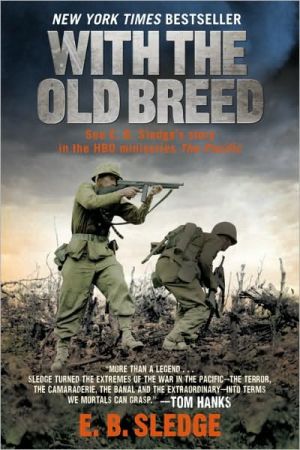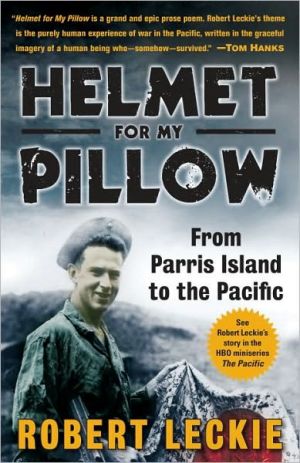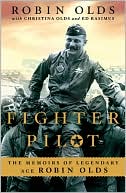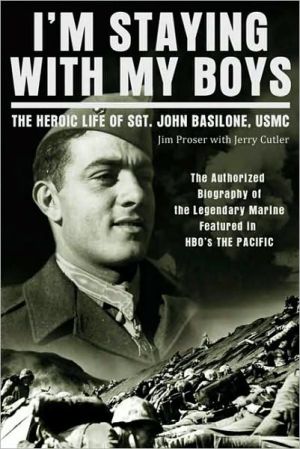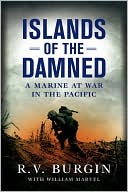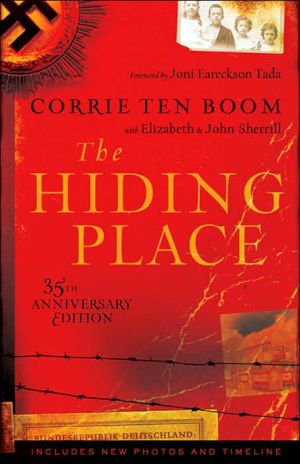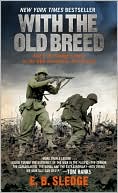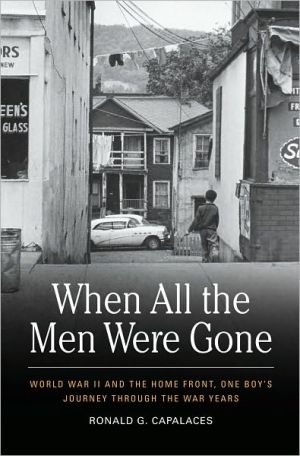Masters and Commanders: How Four Titans Won the War in the West, 1941-1945
An epic joint biography, Masters and Commanders explores the degree to which the course of the Second World War turned on the relationships and temperaments of four of the strongest personalities of the twentieth century: political masters Winston Churchill and Franklin D. Roosevelt and the commanders of their armed forces, General Sir Alan Brooke and General George C. Marshall. Each was exceptionally tough-willed and strong-minded, and each was certain that only he knew best how to win the...
Search in google:
An epic joint biography, Masters and Commanders explores the degree to which the course of the Second World War turned on the relationships and temperaments of four of the strongest personalities of the twentieth century: political masters Winston Churchill and Franklin D. Roosevelt and the commanders of their armed forces, General Sir Alan Brooke and General George C. Marshall. Each was exceptionally tough willed and strong minded, and each was certain that he knew best how to win the war. Yet each knew that he had to win at least two of the others if he was to have his strategy adopted. Andrew Roberts, whom The Economist calls "Britain's finest contemporary military historian," traces the mutual suspicion and admiration, the rebuffs and the charm, the often-explosive disagreements and wary reconciliations, and he helps us to appreciate the motives and imperatives acting upon these key leaders struggling to destroy Nazism.Drawing on newly discovered verbatim accounts of Churchill's war-cabinet meetings and on the private papers of nearly seventy contemporaries, Roberts reconstructs the lively debates of the four principals and other leading figures, and attempts to answer some of the key questions of Allied strategy. Why, when the most direct route from Germany to Britain was through north-western France, did the Western Allies launch attacks via North Africa, Sicily, and Rome? Why, if Operation Overlord in June 1944 was intended to be the start of the Allies' great thrust into Germany, did four hundred thousand men land five hundred miles to the south, in southern France, two months later? Why did the Allies not take Berlin, Vienna, or Prague and allow the Iron Curtain to descend where it did? Masters and Commanders dramatically re-creates the atmosphere, debates, and maneuverings through which Allied grand strategy was forged and reveals the profound impact of personality upon history. The Washington Post - Lynne Olson In Masters and Commanders, British historian Andrew Roberts skillfully dissects the complex, contentious relationships among Brooke, Marshall and the other two key strategists of World War II's Western Alliance, Winston Churchill and Franklin D. Roosevelt…As Roberts makes clear throughout the book, hammering out Allied strategy was an untidy, exhausting, sometimes debilitating process, replete with fist-shaking arguments and emotional tantrums. But the debates, ill-tempered as they often were, produced the searching questions and unsparing analysis needed to come up with a plan for victory, which, in the end, was the only thing that mattered. Feelings might have been bruised, but the alliance itself never fractured.
List of Illustrations ixList of Maps xiiiAcknowledgements xxixPreface xxxiiiIntroduction 1Part I Enchantment1 First Encounters: 1880-June 1940 92 Collecting Allies: June 1940-December 1941 413 Egos in Arcadia: December 1941-February 1942 664 Brooke and Marshall Establish Dominance: February-March 1942 1025 Gymnast Falls, Bolero Retuned: February-April 1942 116Part II Engagement6 Marshall's Mission to London: April 1942 1377 The Commanders at Argonaut: April-June 1942 1678 The Masters at Argonaut: June 1942 1979 Torch Reignited: July 1942 21910 The Most Perilous Moment of the War: July-November 1942 26011 The Mediterranean Garden Path: November 1942-January 1943 29512 The Casablanca Conference: January 1943 31613 The Hard Underbelly of Europe: January-June 1943 34614 The Overlordship of Overlord: June-August 1943 381Part III Estrangement15 From the St Lawrence to the Pyramids: August-November 1943 40116 Eureka! at Teheran: November-December 1943 42917 Anzio, Anvil and Culverin: December 1943-May 1944 45518 D-Day and Dragoon: May-August 1944 48519 Octagon and Tolstoy: August-December 1944 50920 Autumn Mist: December 1944-February 1945 53321 Yalta Requiem: February-May 1945 548Conclusion: The Riddles of the War 573Appendix A The Major Wartime Conferences 585Appendix B Glossary of Codenames 586Appendix C The Selection of Codenames 588Notes 589Bibliography 615Index 625
\ Mark Mazower"Fascinating. . . . By mining previously unavailable diaries and oral histories . . . this book brings vividly to life the personal interactions and impressions of those involved. Roberts has a keen eye for the telling anecdote."\ \ \ \ \ Sir - Martin Gilbert\ "Andrew Roberts, a tenacious archival historian and gifted writer, looks behind the façade of the familiar photographs and published accounts to see how these war leaders actually operated."\ \ \ Richard Overy"The strength of Masters and Commanders lies in the power of the narrative and the fascinating detail used to construct it. Roberts has exploited a rich mine of private papers to fill in missing parts of the story."\ \ \ \ \ Simon Sebag Montefiore"Roberts’s account of the war and its intrigues is fresh-filled with new revelations and new analysis. . . . It is both high scholarship and superb writing by a masterful analyst of power and war."\ \ \ \ \ Max Hastings"Masterly. . . . A triumph of vivid description, telling anecdotes, and informed analysis. Roberts’s book reinforces his claim to stand among the foremost British historians of the period."\ \ \ \ \ The Economist"This is an important book which, in its layered references to Waterloo, the Crimea and the Somme, sees Mr. Roberts lay claim to the title of Britain’s finest contemporary military historian."\ \ \ \ \ The New York Post"Masters and Commanders is a magnificently researched, superbly written account of how the US and UK’s top civilian and military leaders overcame mutual suspicions and conflicting priorities to win the war in Europe."\ \ \ \ \ Lynne OlsonIn Masters and Commanders, British historian Andrew Roberts skillfully dissects the complex, contentious relationships among Brooke, Marshall and the other two key strategists of World War II's Western Alliance, Winston Churchill and Franklin D. Roosevelt…As Roberts makes clear throughout the book, hammering out Allied strategy was an untidy, exhausting, sometimes debilitating process, replete with fist-shaking arguments and emotional tantrums. But the debates, ill-tempered as they often were, produced the searching questions and unsparing analysis needed to come up with a plan for victory, which, in the end, was the only thing that mattered. Feelings might have been bruised, but the alliance itself never fractured.\ —The Washington Post\ \ \ \ \ Publishers WeeklyRoberts offers an outstanding example of a joint biography in this study of the actions and interactions of Franklin Roosevelt, Winston Churchill, George Marshall and Alan Brooke. The president, the prime minister and their respective army chiefs of staff were the vital nexus of the Anglo-American alliance in WWII. The path was anything but smooth. London-based historian Roberts (A History of the English-Speaking Peoples Since 1900) demonstrates his usual mastery of archival and printed sources to show how the tensions and differences among these four strong-willed men shaped policy within a general context of consensus. The politicians had to master strategy; the soldiers had to become political. The result was "a complicated minuet." The increasing shift of power in America's direction coincided with the achievement of the central war aims agreed on for the Mediterranean and with the viability of a cross-channel attack. Last-minute compromises continued to shape grand strategy, a good example being the choice of Dwight Eisenhower over Brooke to command Operation Overlord. Flexibility and honesty, Roberts concludes, enabled focus on a common purpose and established the matrix of the postwar Atlantic world. 16 pages of b&w photos, 7 maps. (May)\ Copyright © Reed Business Information, a division of Reed Elsevier Inc. All rights reserved.\ \ \ \ \ Library JournalOne might well ask why the world needs yet another rehash on the leaders of the great crusades of World War II in Europe, but much-published historian Roberts (A History of the English-Speaking Peoples Since 1900) has identified a previously untapped source of inside information on how the four controlling personalities of the Anglo-British Alliance managed a vast and disparate campaign: Lawrence Burgis. Burgis was present at War Cabinet meetings in both World Wars and kept voluminous notes and a diary. To do so was strictly illegal, but the results are a mother lode for historians today. Burgis and a couple of other clandestine diarists provide much of the texture in Roberts's narrative of the relationships among the four principals: Roosevelt, Churchill, Marshall, and Alanbrooke. Although not a book calculated to change anyone's mind about the course or outcome of the war, this is a well-told story, with fresh insights into the decision-making processes and the influence of personality upon great events. For all readers of military history.\ —Edwin B. Burgess\ \ \ \ \ \ Kirkus ReviewsA richly detailed examination of the military and civilian leaders of Britain and America during World War II. Just before Franklin Roosevelt's death in April 1945, when Nazi Germany had all but collapsed, U.S. military commander George C. Marshall wrote, "Our greatest triumph really lies in the fact that we achieved the impossible, Allied military unity of action." Schooled in the wars of the 19th century and the trenches of WWI, Marshall shared military background but little else with his British counterpart, Alan Brooke. In 1942, the American newcomers to the European theater found that, even after defeats nearly every time British forces met German ones on the ground, the British general staff was not inclined to have former colonials in command. Fantastic rows ensued as both the British and the American armies aligned command structures closely enough to cooperate in battle. It cost the British leadership considerable effort to convince American counterparts that the war in North Africa was not a sideshow, while the Americans believed that the British were "viscerally opposed to any cross-Channel operation ever taking place," all the way up to D-Day and the Normandy landings. Even very late in the war, Roberts (A History of the English-Speaking Peoples Since 1900, 2007, etc.) notes, those leaders sharply disagreed on matters of both strategy and tactics. Yet amazingly, Marshall, Churchill, Roosevelt and Brooke developed an effective partnership in the West. Historians disinclined to the Great Man school of historical writing may object to the notion, but clearly powerful personalities and no small degree of luck were involved. Roberts's narrative sometimes reads like an exercise ingame theory, with each player trying to secure maximum advantage without ending the game or, worse, losing all. His book will be of value to students not just of military history, but also diplomacy, business and other endeavors requiring negotiation. Excellent and essential. Agent: Georgina Capel/Capel & Land\ \

